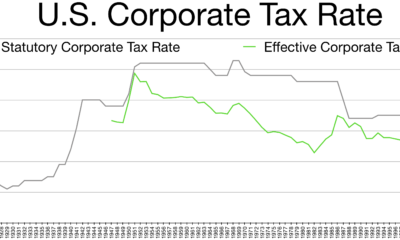Business
Families are rushing to transfer property amid fears of Labour’s inheritance tax crackdown

Wealthy landowners are rushing to hand over their estates to their children in the run-up to the general election, driven by fears that a Labor government would tighten inheritance tax credits.
Joseph Adunse, a partner at Moore Kingston Smith and an adviser to landowners, has said concerns about potential tax bills have prompted many to speed up the transfer of ownership. “There are obviously concerns about whether there is sufficient funding for Labour’s plans. People have indeed done that and given away some assets and wealth in preparation for any changes, to effectively reduce the value of estates that may fall within the scope,” he explained.
Under current rules, inheritance tax is charged at 40% on estates worth more than £325,000, rising to £500,000 if a house is left to children or grandchildren. The agricultural property exemption provides up to 100% inheritance tax relief for those passing on agricultural land and farms, while the commercial property exemption offers similar benefits to prevent businesses being sold or split up after the owner’s death.
In 2021, Rachel Reeves, the shadow chancellor, indicated that Labor could review “any tax benefit” if voted into power, including relief for farmers. However, Defra’s shadow secretary, Steve Reed, confirmed last December that the party has no plans to change inheritance tax rules that prevent farms being divided after the landowner’s death. Despite this, a recent report from the Institute for Fiscal Studies (IFS) recommended removing certain tax credits, including exemptions for agriculture and businesses, to raise £3 billion for the economy. The report suggested that limiting these exemptions to £500,000 per person could generate a further £1.8 billion in tax revenue by 2029-30.
Adunse noted that individuals with significant wealth, especially those with estates worth more than £20 million, are keeping a close eye on the rules. Gifts given away during a person’s lifetime are generally exempt from inheritance tax, provided they are made more than seven years before death, while transfers between spouses are always exempt.
A recent survey by accountancy firm Saffery and Historic Houses found that more than half of property owners with estates worth more than £1 billion consider minimizing taxes to be the main reason for succession planning. This increase in inheritance transfers comes after a record year for inheritance tax revenues, due to tax threshold freezes and rising home values. Figures from HM Revenue and Customs show that tax receipts rose by almost 14% in April compared to last year, raising £700 million.













